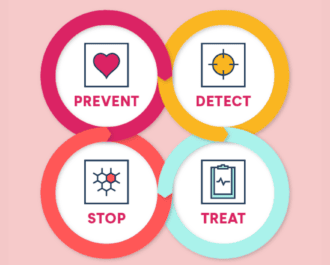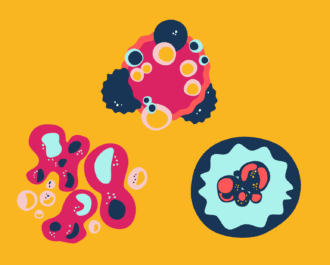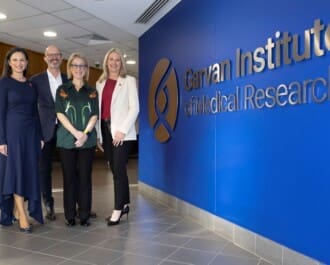 Stop
Stop
Words by Sylvia Lee
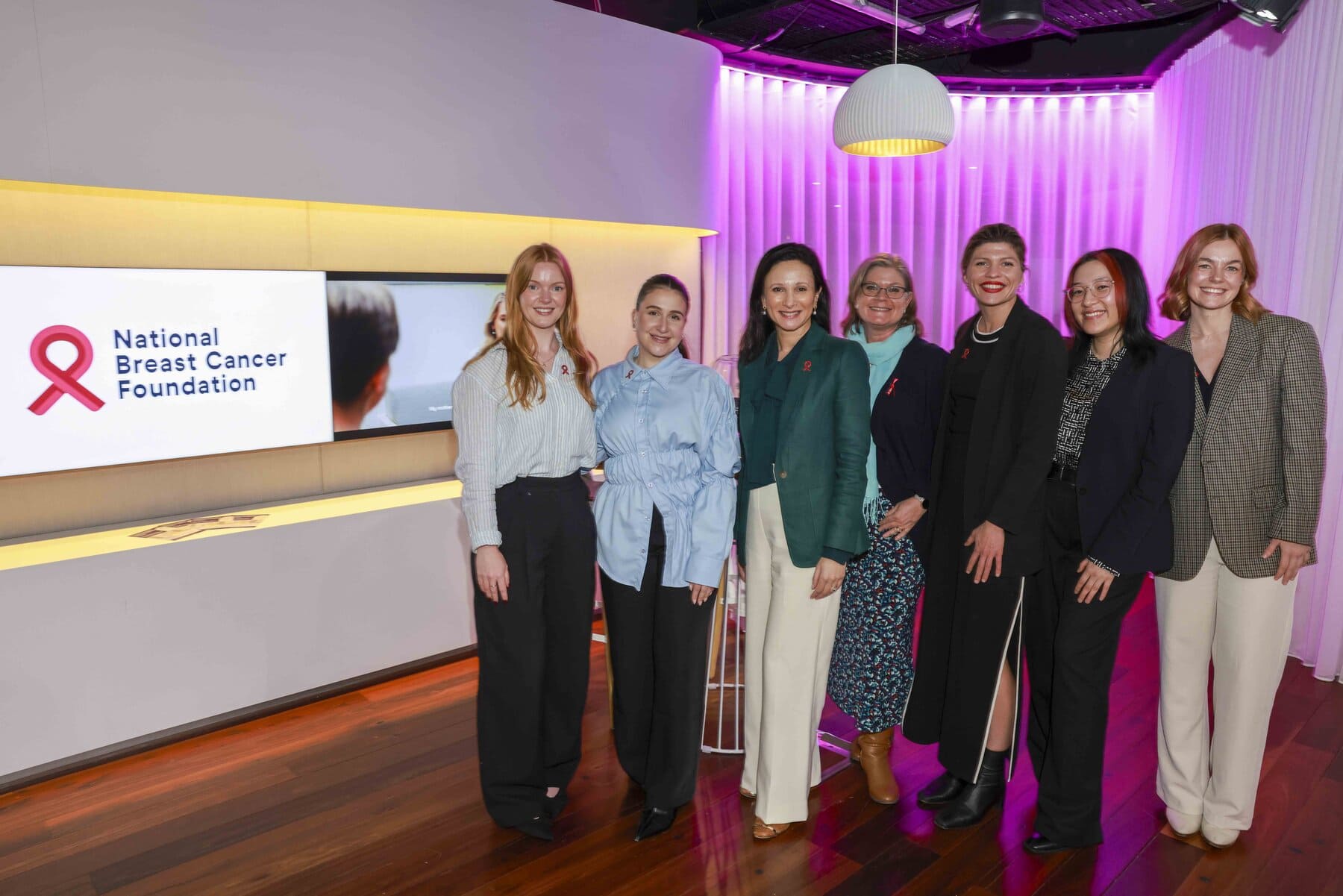
The NBCF Team at the Women’s Agenda 2025 Women’s Health and Wellbeing Summit – Photography by Katherine Griffiths
The National Breast Cancer Foundation (NBCF) was proud to be a Charity Partner of the 2025 Women’s Health and Wellbeing Summit, presented by 100 per cent women-owned media company Women’s Agenda. Our CEO Dr Cleola Anderiesz also took the stage alongside other leaders in women’s health to share how NBCF is driving change – thanks to our incredible supporters.
Beginning with a Welcome to Country by City of Sydney Councillor and Wiradjuri woman Yvonne Weldon, the Summit was MCed by Yasmin London and filled with powerful keynotes, stories and wisdom from inspiring women like Wendy McCarthy AC, Antoinette Lattouf, Dr Danielle McMullen, Dr Fatima Khan, Nicole Yade, Professor Melody Ding, Professor Cassandra Szoeke and Dina Titkova.
From thought-provoking conversations about the heart disease gender gap and loneliness epidemic to perimenopause and menopause, gender-based violence and mental health, it was a phenomenal day dedicated to the issues central to women and gender diverse people’s health across the life course.
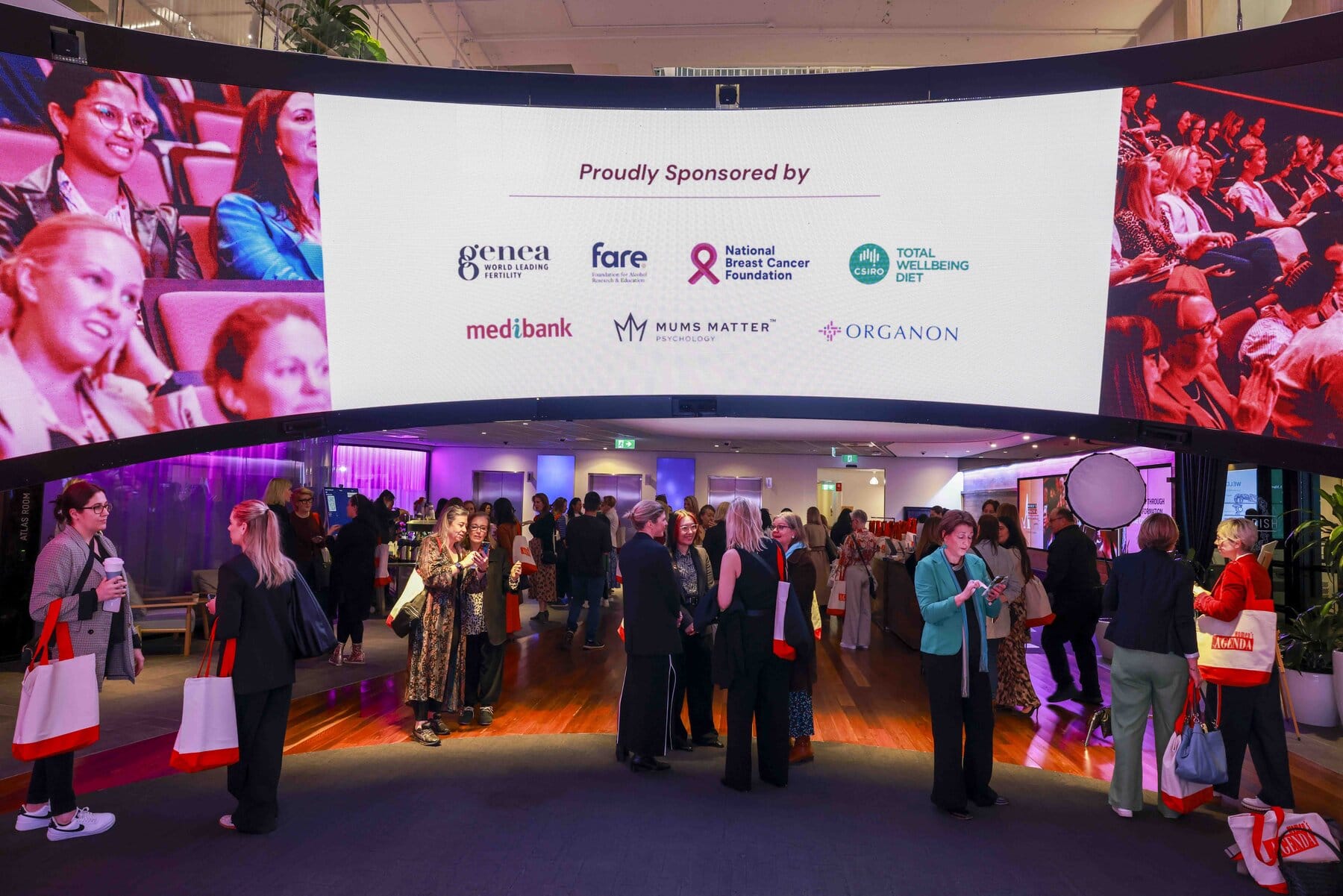
Attendees of the Women’s Agenda 2025 Women’s Health and Wellbeing Summit, proudly sponsored by NBCF – Photography by Katherine Griffiths
While there have been recent gains in this area, such as the Australian Government’s $573.3 million package for women’s health, there is still so much more to do in shaping a just and equitable future for women and gender diverse people.
The global picture is staggering: Women tend to live longer than men, yet they spend 25 per cent of their lives in poor health and with some degree of disability. According to the 2024 World Economic Forum and McKinsey Health Institute report, addressing this health disparity could improve millions of lives and boost the global economy by at least $1 trillion annually by 2040. In her opening address, Women’s Agenda Editor-in-Chief Tarla Lambert-Patel said, “The fight for women’s health is global,” and reflected on the ongoing global crises that are further impacting women’s health outcomes and survival.
Despite making up half of the global population, only seven per cent of health research funding goes towards conditions exclusively affecting women and those assigned female at birth. And only five per cent of currently available medications have been tested, monitored and labelled for safe use during pregnancy and breastfeeding – making the need for women’s health research even more critical.
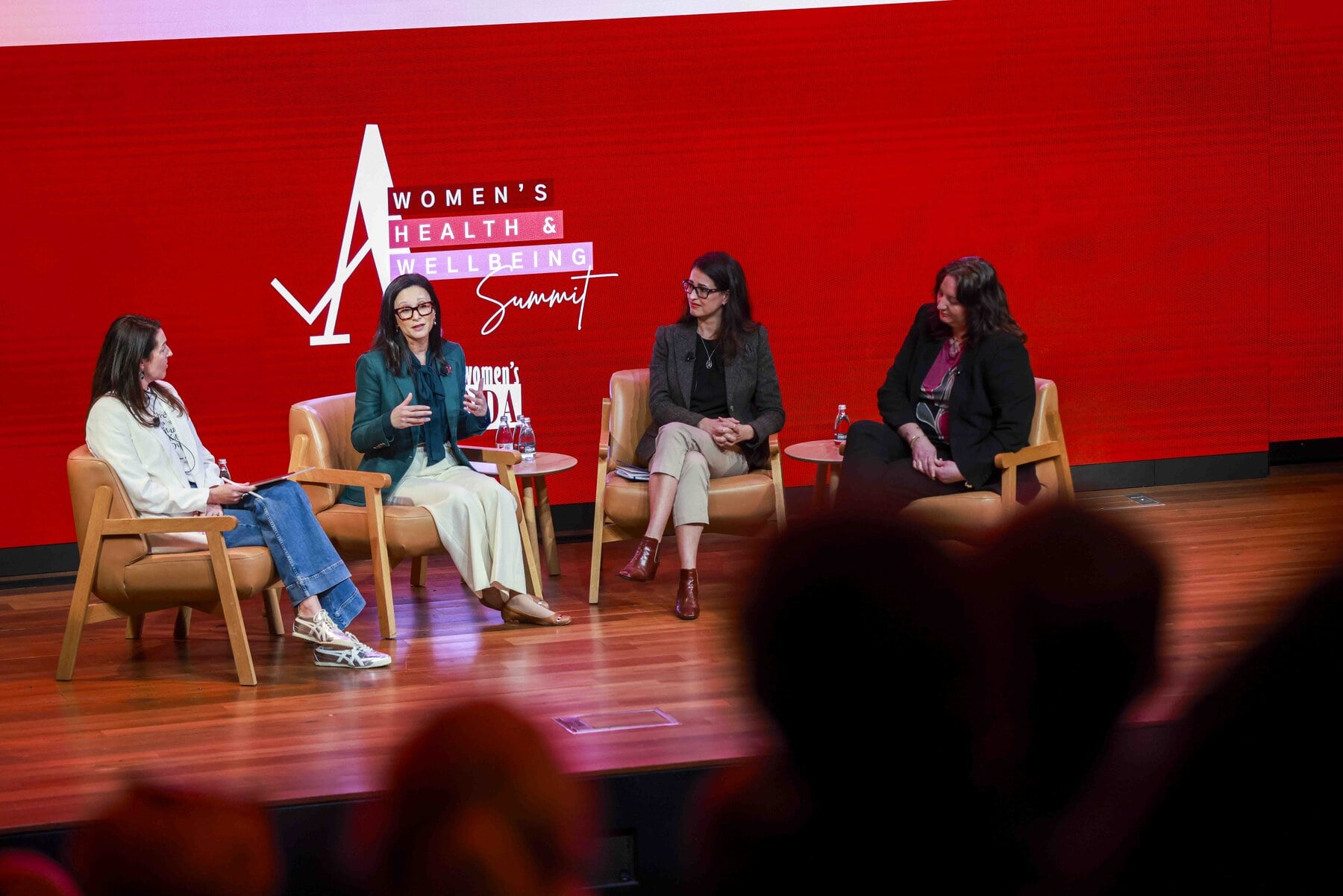
NBCF CEO Dr Cleola Anderiesz (second from left) alongside Women’s Agenda Founding Editor Angela Priestley (far left), Dina Titkova (third from left) and Professor Cassandra Szoeke (fourth from left) during the ‘Advancements in Women’s Health Research’ panel discussion – Photography by Katherine Griffiths
For the ‘Advancements in Women’s Health Research’ panel, our CEO Dr Cleola Anderiesz was joined by Women’s Agenda Founding Editor Angela Priestley, Professor Cassandra Szoeke, a neurologist and researcher who leads the Women’s Healthy Ageing Project, and Dina Titkova, a leader in health innovation and Senior Manager at UNSW Founders. They spoke passionately about the need to invest in women’s health research and to include women of all life stages in the design of clinical trials, research translation, and the research workforce. Here are three key takeaways:
1. The impacts of breast cancer are far-reaching
Every year, around 21,000 people will face a breast cancer diagnosis for the first time. Breast cancer doesn’t only impact their health and wellbeing; it also affects the economic welfare of people of working age. From 2022 to 2031, it is predicted that breast cancer will lead to a productivity loss of over 16,000 productivity-adjusted life-years (PALY) in Australia. That’s equivalent to almost $3.3 billion in lost GDP. And there is the devastating loss of life across the globe: There were over a million maternal orphans due to cancer in 2020 – a quarter of these were due to the death of their mother from breast cancer.
“It’s beyond the economic impact,” said Dr Cleola Anderiesz. “It’s the impact that women have on our communities, on our families, and even broader still, we are losing the voices and the leadership of women who go on to shape the outcomes of health and many other areas across Australia.”
2. Women of all walks of life need to be included in research
Historically, women weren’t participants in medical research – until their inclusion was mandated by the US Congress in 1993. According to Professor Szoeke, women experience more side effects of heart disease medication (which are also less effective in women) than men because these drugs weren’t tested in women and only male animals were used in toxicity and safety studies. Women’s health funding, such as the Government’s recent package, is “helping so many people, but not one woman over 50,” she adds, due to the focus on reproductive health.
NBCF’s Pink Horizon Research Strategy, a bold and transformational plan to accelerate towards Zero Deaths from breast cancer, strives to address gaps in women’s health research. We do this by ensuring that solutions are effective and readily available for women in major cities, rural locations and multicultural communities.
3. Advancements in women’s health research are essential to achieving Zero Deaths from breast cancer
“We change outcomes because we invest in research and apply these research findings into clinical practice and policy. In the last 30 years that National Breast Cancer Foundation has been established, the death rate from breast cancer has actually reduced by 40 per cent, so that’s a significant reduction in the death rate. That’s [the result of] investing in research, understanding the disease and applying those findings into policy and practice.” Dr Cleola Anderiesz
Through the support of our generous community, NBCF is tackling breast cancer’s most urgent and unsolved challenges through our first-ever Collaborative Research Accelerator (CRA) Grant, which was awarded to the ‘AllClear’ program led by Associate Professor Christine Chaffer at the Garvan Institute of Medical Research.
“[The CRA brings] the voice of women who are impacted by breast cancer to help design and implement the research and the research findings,” said Dr Anderiesz. “Because it’s only through their voices that we can understand what the important research is and guide it in a way that will result in meaningful outcomes.” This marks a new era in Australian research investment, bringing together national and global leaders in research, and people with lived experience, to accelerate progress towards our bold vision of Zero Deaths from breast cancer.
More News Articles
View all News Stop
Stop
